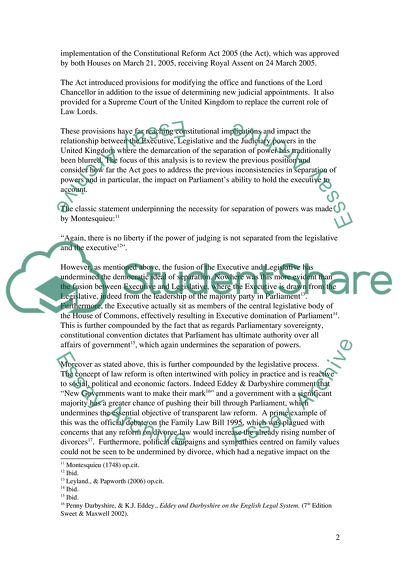Cite this document
(Have Recent Reforms Increased Parliaments Ability to Hold the Executive to Account Article Example | Topics and Well Written Essays - 2250 words, n.d.)
Have Recent Reforms Increased Parliaments Ability to Hold the Executive to Account Article Example | Topics and Well Written Essays - 2250 words. https://studentshare.org/law/1550405-have-recent-reforms-increased-parliaments-ability-to-hold-the-executive-to-account
Have Recent Reforms Increased Parliaments Ability to Hold the Executive to Account Article Example | Topics and Well Written Essays - 2250 words. https://studentshare.org/law/1550405-have-recent-reforms-increased-parliaments-ability-to-hold-the-executive-to-account
(Have Recent Reforms Increased Parliaments Ability to Hold the Executive to Account Article Example | Topics and Well Written Essays - 2250 Words)
Have Recent Reforms Increased Parliaments Ability to Hold the Executive to Account Article Example | Topics and Well Written Essays - 2250 Words. https://studentshare.org/law/1550405-have-recent-reforms-increased-parliaments-ability-to-hold-the-executive-to-account.
Have Recent Reforms Increased Parliaments Ability to Hold the Executive to Account Article Example | Topics and Well Written Essays - 2250 Words. https://studentshare.org/law/1550405-have-recent-reforms-increased-parliaments-ability-to-hold-the-executive-to-account.
“Have Recent Reforms Increased Parliaments Ability to Hold the Executive to Account Article Example | Topics and Well Written Essays - 2250 Words”. https://studentshare.org/law/1550405-have-recent-reforms-increased-parliaments-ability-to-hold-the-executive-to-account.


